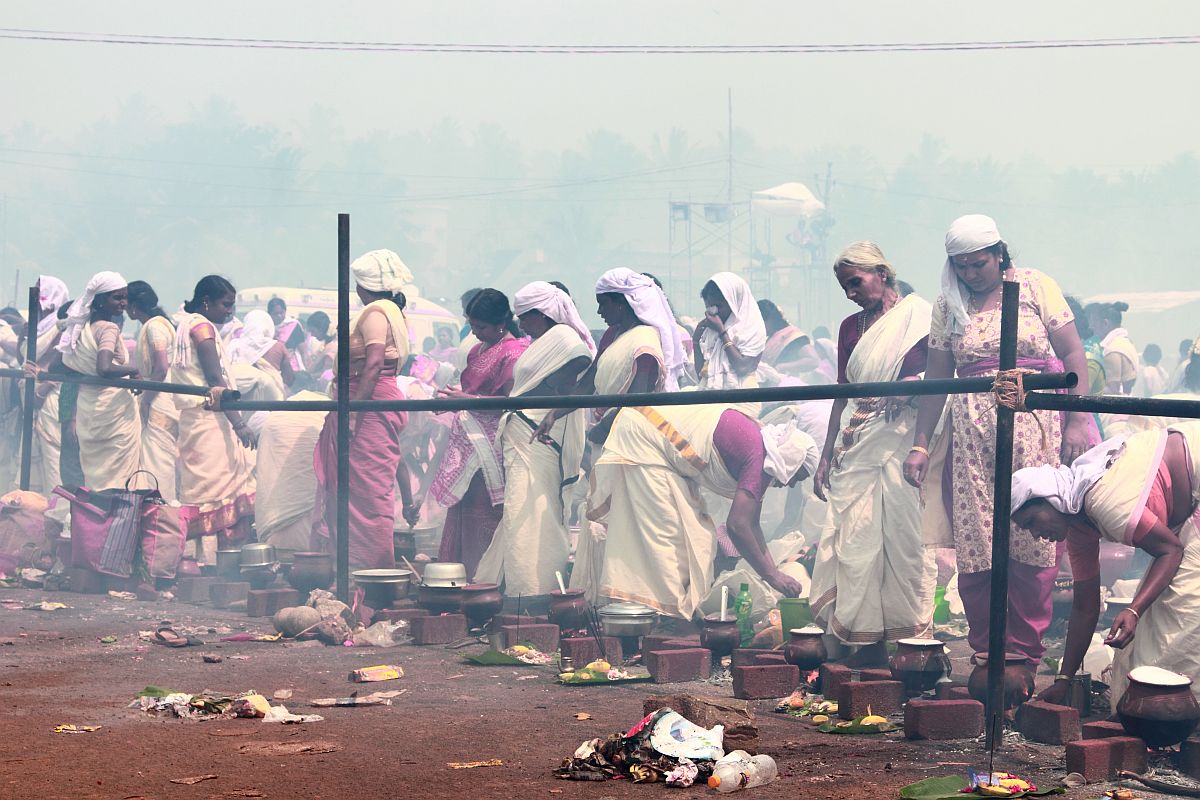India is a land of festivals. Every festival is celebrated with enthusiasm. It also represents our culture. Among all these festivals one is Pongal which is just around the corner.
The biggest festival in Tamil Nadu starts on January 13th and ends on the 16th.
Advertisement
Pongal is widely celebrated among the Tamil community. It is a three-day multi-day Hindu harvest festival. This is celebrated in much grand and grandeur in Tamil Nadu and a few parts of Kerala. Pongal marks the beginning of Uttarayan, the sun’s northward journey for the next six months. Pongal is also known as Thai Pongal.
The literal meaning of Pongal is spilling over or boiling. It is derived from Tamil literature. This resembles abundance and prosperity. Pongal is celebrated to thank God for providing a year-long good harvest. Along with this, Pongal is also named out of a sweet dish. It is made of rice, jaggery, and milk.
Pongal festival is a four-day celebration affair. Each day is marked by different festivities- The first day is called the Bhogi festival; the Second day is called Thai Pongal; the Third day is called Mattu Pongal; the Fourth day is called Kaanum Pongal.
History of the Pongal Festival
The history of the festival can be traced back to the Sangam Age and is considered as the ‘Dravidian Harvest festival’. But some historians claim that this festival is dated back at least 2,000 years old. It was celebrated as Thai NiradalNadal.
According to the legends, during this festive season, unmarried girls prayed for the agricultural prosperity of the country, and for this purpose, they observed penance during the Tamil month of Margazhi. They abstained from the consumption of milk and milk products, didn’t oil their hair throughout the month. The use of harsh words is strictly refrained by them. Ceremonial bath in the early morning as part of the ritual of penance.
Why is Pongal celebrated?
According to Hindu Mythology, Lord Shiva once asked Basava (Bull) to visit the Earth and ask the Human to have an oil massage and bath every day. But Basava (Bull) announced that eat daily and have an oil bath once a month. This makes Lord Shiva furious and he cursed the Basava (Bull) to live on the Earth forever and said that Basava (Bull) has to plow the fields and help people produce more food. Hence, people after harvesting celebrate this festival with crops and cattle.
Importance of the Pongal
It is a harvesting festival or it can be considered as the ‘thanksgiving’ festival’ because this festival is celebrated to thank the Sun God and Lord Indra for helping farmers in getting better-yielding crops. During the festival, people reject old belongings and welcome new stuff.
Know all about the 4 days of Pongal
Bhogi Pongal: The celebrations of this day revolved around a bonfire, much like the Lohri festival in Punjab. Bhogi Pongal is dedicated to Lord Indra. People clean their houses and decorate with ‘Kolams‘ or rangoli. Beautiful Pongal Kolams are made with a paste of rice flour and water, and red earth. Lamps and fresh flowers are also used to decorate homes.
Thai Pongal: This is the main day of the Pongal festivities. Also called Surya Pongal, the day is dedicated to the Sun God. On this day, people in Tamil Nadu make a traditional sweet dish called ‘Pongal‘ with rice, milk, and jaggery. This is offered to the god as prasad. On Thai Pongal, people boil freshly harvested rice and milk in earthen pots till it overflows. This ritual symbolizes prosperity. In many regions of Tamil Nadu, women gather at a particular place and perform the ritual together. Other items like sugarcane, coconut, and bananas are also offered to the Sun god.
Mattu Pongal: This is the third day of the Pongal celebrations. On this day, cattle – central to the farming community – are given a bath and decorated with flowers and turmeric. Cows and oxen are offered the ‘Pongal‘. Bull fightsBullfights, known as Jallikattu, are organized on this day. The bull-taming sport is famous in the Madurai district of Tamil Nadu.
Kaanum Pongal: This is the final day of the Pongal celebrations and families meet and exchange gifts. On Kaanum Pongal, sisters also pray for the well-being of their brothers.
Pongal usually ushers in the New Year in Tamil Nadu. The festival is largely about giving and sharing. A lot of charitable and philanthropic activities are done during the Pongal days and animals and birds are fed and offered prayers as they help in sustaining life.
HAPPY PONGAL!!











